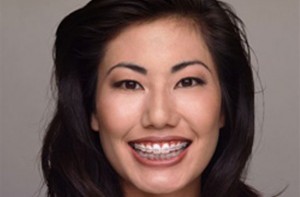Orthodontic’s Menu
Adults & Braces
We are frequently asked whether adults are too old for braces, the answer is people of all ages are getting new smiles with discreet, bespoke braces. Adults are turning to orthodontic treatment in greater numbers than ever before.
- A study conducted by YouGov’ on behalf of British Orthodontic Society (BOS) revealed: 45% of UK adults are unhappy with the appearance of their teeth.
- 20% of UK adults would consider having some form of orthodontic treatment to improve the alignment and appearance of their teeth.
- Of the adults who felt orthodontic treatment would be of benefit, 56% would contemplate treatment for an improvement in appearance, 25% for an improvement in self esteem and 18% for an improvement in oral health and function.
Before Treatment – Today, orthodontic treatment is a viable option for almost any adult. It is well recognised that when left untreated, many orthodontic problems may become worse.
Here are a few reasons that may have you turning to orthodontic care:
- A “bad bite” or malocclusion. Teeth that do not fit well often wear down quickly – another reason to make sure that your teeth are in good alignment and well maintained during your adult years.
- Bad bites can also result in abnormal wearing of tooth surfaces, difficulty chewing and damage to supporting bone and gum tissue.
- Crowded teeth: Crowded teeth are harder to clean and, given time, may contribute to tooth decay or gum disease.
FAQ’s by Adults Who Need Braces
Can orthodontic treatment do for me what it does for children?
Yes. Healthy teeth can be moved at any age. Orthodontic treatment moves the teeth in the same way for both adults and children.
How does adult treatment differ from that of children and adolescents?
Here are a few of most common ways adult orthodontic treatment differs from the orthodontic treatment of children’s teeth:
- No jaw growth: Jaw discrepancy problems may not be able to be corrected with braces alone. Establishing a proper bite relationship could require jaw surgery.
- Gum or bone loss (periodontal breakdown): Adults are more likely to have experienced damage or loss of the gum and bone supporting their teeth (periodontal disease). Special treatment by the patient’s dentist or a periodontist may be necessary before, during and/or after orthodontic treatment. The good news is that teeth that are properly aligned are less prone to gum disease. The Behrens Dental Practice also offer periodontal treatment which is non-surgical. We are one of the very few practices throughout the the UK to offer this.
- Worn, damaged or missing teeth: Damaged or broken teeth may not look good or function well even after orthodontic treatment unless the dentist carefully restores them. Extra space resulting from missing teeth that are not replaced may cause progressive tipping and drifting of other teeth, which worsens the bite, increases the potential for periodontal problems and can make any treatment more difficult.




